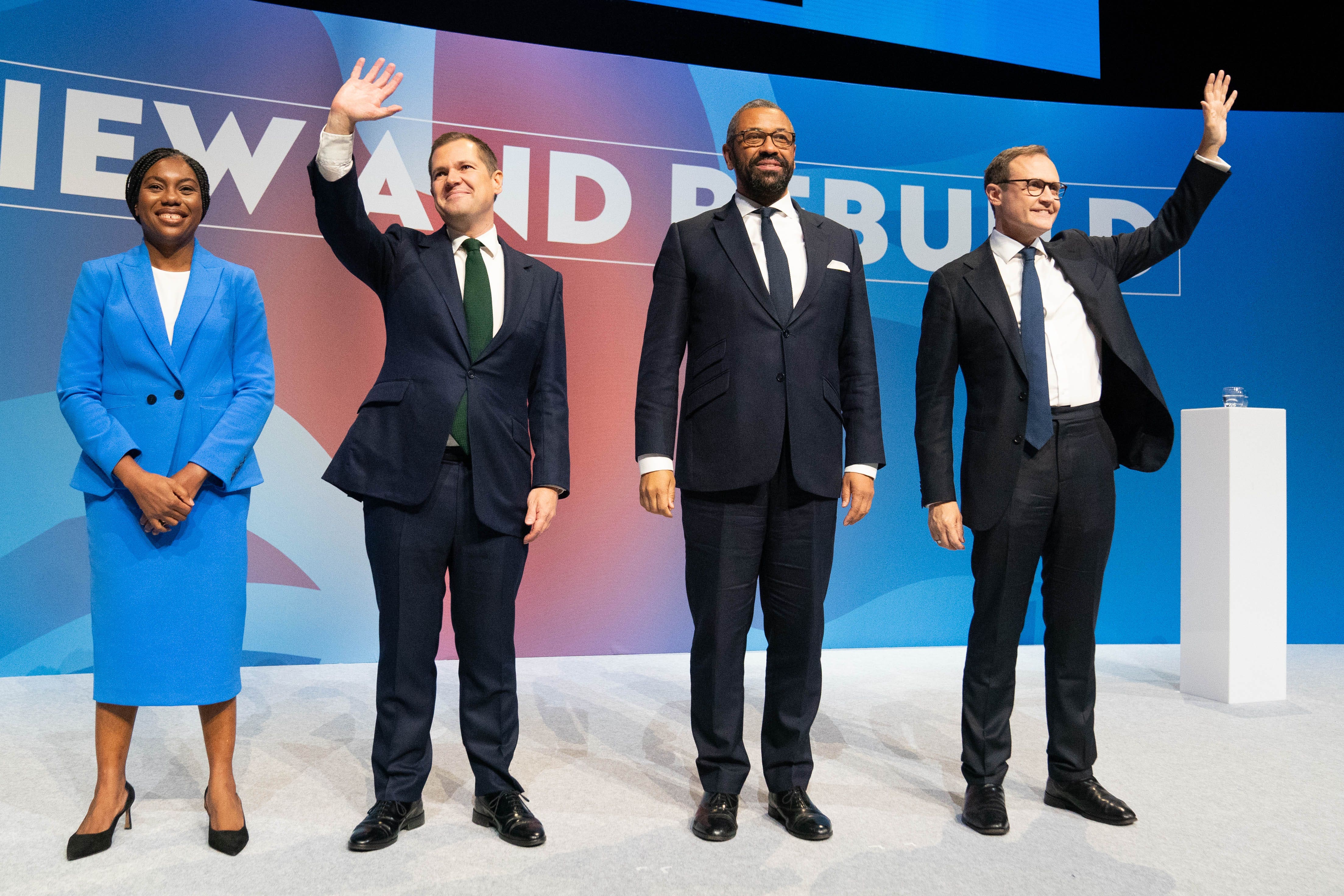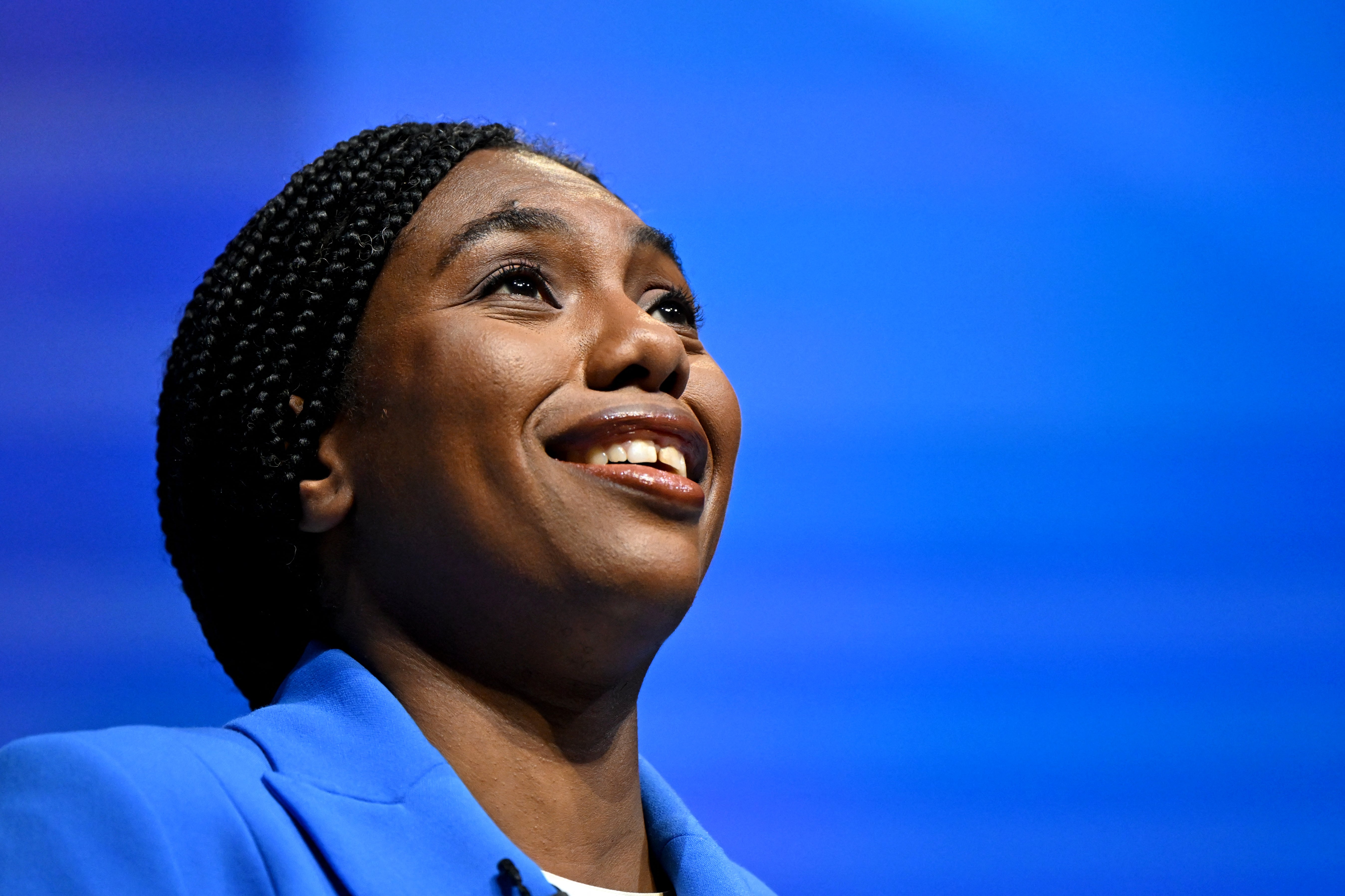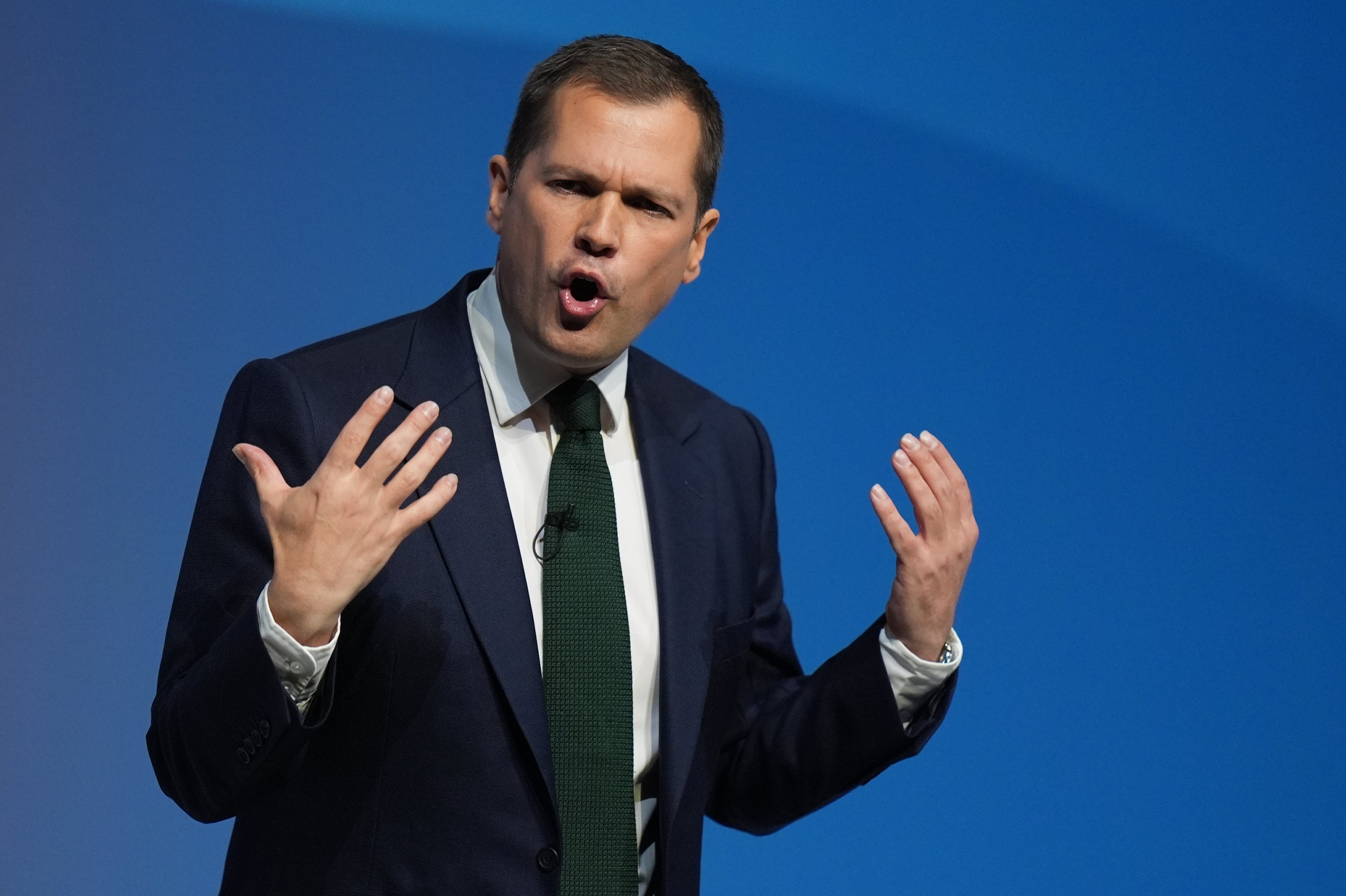Kemi Badenoch or Robert Jenrick: What policies set the final two Tory leadership candidates apart
The Tory party appears to be veering toward the right with the final two candidates - here we look at the difference between the pair

Your support helps us to tell the story
From reproductive rights to climate change to Big Tech, The Independent is on the ground when the story is developing. Whether it's investigating the financials of Elon Musk's pro-Trump PAC or producing our latest documentary, 'The A Word', which shines a light on the American women fighting for reproductive rights, we know how important it is to parse out the facts from the messaging.
At such a critical moment in US history, we need reporters on the ground. Your donation allows us to keep sending journalists to speak to both sides of the story.
The Independent is trusted by Americans across the entire political spectrum. And unlike many other quality news outlets, we choose not to lock Americans out of our reporting and analysis with paywalls. We believe quality journalism should be available to everyone, paid for by those who can afford it.
Your support makes all the difference.The Conservative leadership election has been whittled down to the two final candidates, as Kemi Badenoch and Robert Jenrick face off for a final month of campaigning.
Both MPs are considered to be on the right of the party, with Labour officials reportedly rejoicing that the more centrist – and perhaps more electable – candidate James Cleverly was knocked out in a surprise result.
With their seemingly similar politics, some have struggled to see the key differences between Ms Badenoch and Mr Jenrick. Both are outspoken social commentators, unafraid to share their views.

The party’s lurch to the right has been seen by some experts as a bid by Conservative members to appease voters who gave their votes to Reform UK at July’s general election. The Nigel Farage-led party came third for vote share, securing over four million ballots with polling indicating that most were from previous Tory voters.
Following the ousting of Mr Cleverly, this seems to be the way the Conservative party is heading. Anti-migrant policies, social conservatism and Euroscepticism are part and parcel of both the remaining candidates’ views – but there are also a few key differences between them.
Europe
Mr Jenrick has already attempted to draw a dividing line between himself and his opponent on the European Court of Human Rights (ECHR). A long-time foil of Conservative plans, such as the Rwanda scheme, the ECHR was heavily criticised by Rishi Sunak during his time as prime minister for interfering with UK politics.
However, the incumbent leader never quite committed to withdrawing the UK from the European institution either. Mr Jenrick has promised that he would do this immediately if he became prime minister.

Meanwhile, Ms Badenoch has said that focusing on the ECHR “shuts down the conversation we need to have with the entire country” about migration.
Despite Mr Jenrick’s strong rhetoric on European relations today, he was opposed to Brexit in 2016 and voted remain, but has since vocally supported the UK’s departure from the EU. Ms Badenoch was a supporter of Brexit before the referendum.
Political record
During his time in parliament, Mr Jenrick has faced criticism for his seeming shift to the right, away from the more centrist politics he touted when becoming an MP. Quitting as immigration minister over the Conservative’s ECHR plan, he later began demanding tougher measures on small boat migrant crossings.
Former MP Anna Soubry has criticised Mr Jenrick for a lack of authenticity in the past, saying in an interview that he “trims his sails to suit whichever political wind is blowing within the Conservative Party”.

If there’s one criticism that can’t be lodged against Ms Badenoch, it’s concealing how she really feels. The London-born MP has gained a reputation for being outspoken since her early days in Commons, speaking out in the past against gender identity services, critical race theory, and migrant cultures.
Both politicians have held senior cabinet positions in government, with Ms Badenoch most recently acting as business secretary while Mr Jenrick was overseeing migration before his departure. Neither tended to vote against the government during their time in power.
Scandals
Ms Badenoch’s outspoken nature has seen her face several public spats in the past – a habit some Conservative voters may worry could affect her credibility as leader. Most recently, she was criticised by Doctor Who actor David Tennant who said he wished she would “shut up” as he received an allyship award at the British LGBT Awards.
Responding in her leadership bid launch video, Ms Badenoch said the Conservatives need “someone like me who’s not afraid of Doctor Who,” provoking some mockery.
Mr Jenrick is also not without his past controversies. As housing secretary under Boris Johnson, the Newark MP was accused of cronyism when he approved a £1 billion luxury housing development in East London proposed by Conservative donor Richard Desmond.
A judicial review found that the approval was “unlawful by reason of apparent bias”.
He had been criticised for other planning decisions as housing minister, including giving permission for several projects despite local authority protests.
Subscribe to Independent Premium to bookmark this article
Want to bookmark your favourite articles and stories to read or reference later? Start your Independent Premium subscription today.
Join our commenting forum
Join thought-provoking conversations, follow other Independent readers and see their replies
Comments